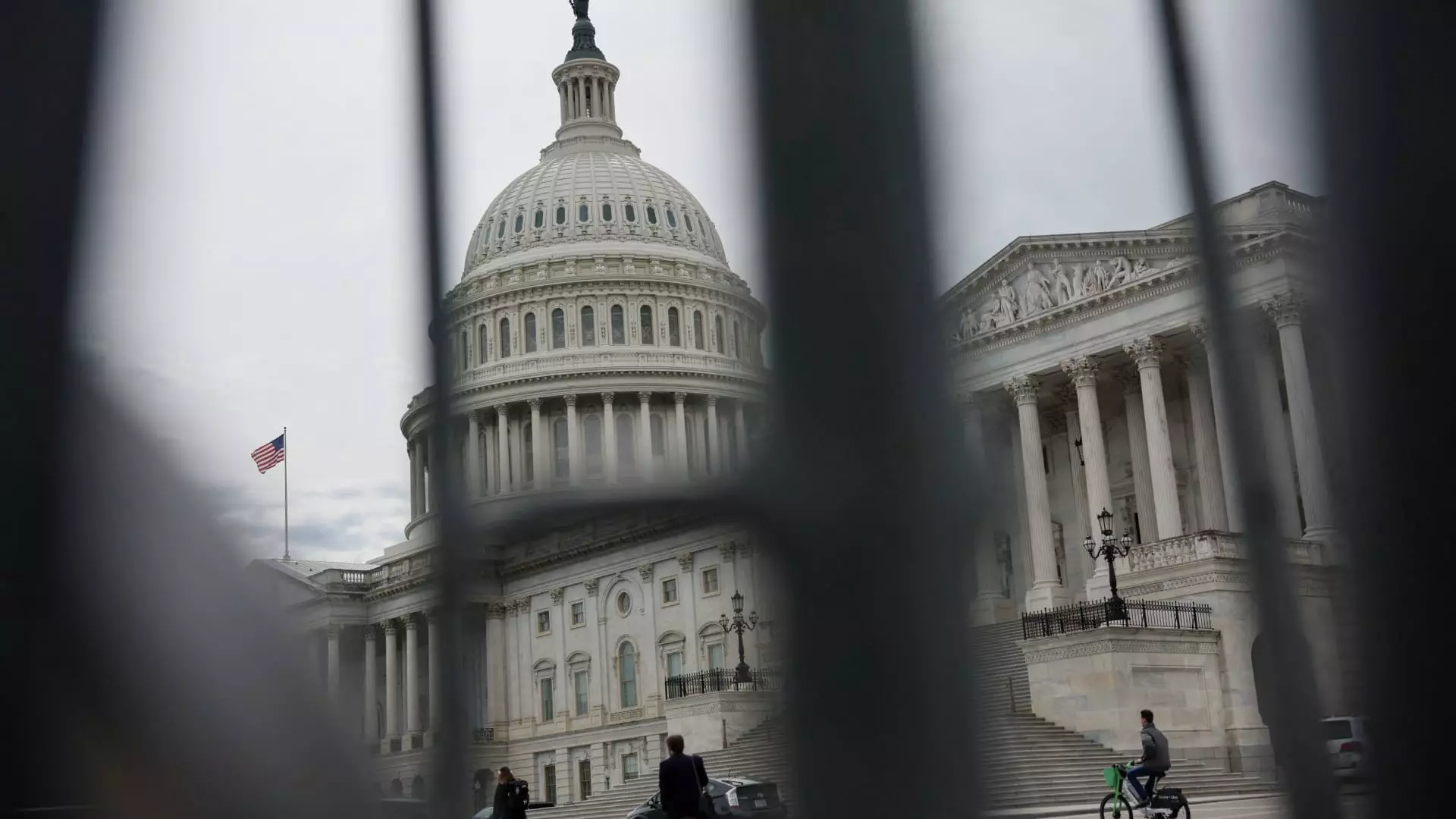In the early hours of Saturday morning, a significant vote echoed through the halls of the U.S. Senate, allowing a Republican budget blueprint to pass that could potentially alter the financial landscape of the nation for decades. The measure, which seeks to extend Donald Trump’s 2017 tax cuts, is a classic example of a political maneuver that prioritizes immediate party goals over the long-term economic health of the country. By sidestepping the filibuster, Republicans have positioned themselves to introduce a massive tax overhaul that, despite their claims, has the potential to add trillions to the national debt.
The budget plan claims a modest figure of $1.5 trillion, designed to assuage concerns about the mounting deficit. Yet, non-partisan analysts estimate that the real impact could swell the national debt by around $5.7 trillion over the next decade. This stark contrast between Republican assertions and independent analyses illustrates a broader theme in American politics: the manipulation of facts to serve political ends. Why should Americans trust a party that prioritizes tax breaks for the wealthy while masking the inevitable burdens on the middle class?
The Dangerous Myth of Economic Growth
Republican leaders like Senator Lindsey Graham posit that the expiration of the tax cuts will equate to a significant tax hike for American families, specifically targeting middle-income earners. The argument often made—that allowing the cuts to expire will devastate the average taxpayer—falls flat when scrutinized. Tax cuts for the rich do not trickle down; rather, they concentrate wealth within a small segment of society. If we are to believe that these tax breaks will spur an economic renaissance, we must also grapple with the reality that they are likely to exacerbate income inequality and weaken social safety nets that many Americans rely on.
Moreover, this budget blueprint endeavors to raise the federal debt ceiling by an eye-popping $5 trillion—an action that reeks of fiscal irresponsibility. We are teetering on the edge of a precipice, with $36.6 trillion in existing debt that requires a responsible Congress to manage. Instead, we witness a cavalier attitude towards spending that jeopardizes critical social programs for the sake of maintaining tax cuts for the ultra-wealthy. The vicious cycle of prioritizing corporate welfare over social justice must stop.
Social Safety Nets Under Siege
The implications of this budget extend far beyond merely numbers; it touches the lives of millions of Americans, particularly those reliant on Medicaid and other crucial government programs. Democrats have raised alarms about potential cuts to Medicaid that could dislocate healthcare for vulnerable populations, including children and low-income individuals. By proposing spending cuts to Medicaid, primarily viewed as a resource for the disadvantaged, Republicans are engaging in economic self-sabotage that does nothing but exacerbate existing societal problems.
Senator Bernie Sanders aptly describes such cuts as an ill-advised path that would lead to even greater harm. The sales pitch of efficiency—as used by Republicans to cloak damaging budgetary decisions—rings hollow when stacked against the impending consequences that would see millions losing access to essential health services. Why is it that in an era defined by extraordinary wealth, the health and wellbeing of the many are sacrificed at the altar of financial conveniences tailored for the few?
The Chilling Effects of Economic Policy
As if the budget proposals were not grim enough, the ripple effects of economic policy imperil not just the immediate fiscal landscape but dampen the broader economic outlook as well. The stock market woes and repercussions from Trump’s trade tariffs deepen this uncertainty, raising costs and darkening the forecast for a potential recession. Economic policymaking should expand opportunities rather than contract them; offering a lifeline to large corporations while jeopardizing the livelihoods of everyday Americans creates a vacuum of fairness.
Despite the critical amendments proposed by Democrats aimed at fortifying Social Security and veteran care, they languish under Republican opposition, creating an atmosphere of bitterness and frustration. The resistance to incorporate these crucial safety nets highlights a broader issue: the political willingness to neglect the needs of those who have served the country in favor of appeasing economic elites.
The path laid out by the Republican budget blueprint embodies a glaring contradiction—attempting to cut spending while simultaneously expanding the debt. Such logical dissonance not only undermines the GOP’s credibility but illustrates a troubling trend in U.S. politics: a willingness to prioritize party over people. As the House convenes to review this convoluted plan, it is essential for lawmakers to hold fast to principles of equity and social responsibility in the face of fiscal irresponsibility.


Leave a Reply